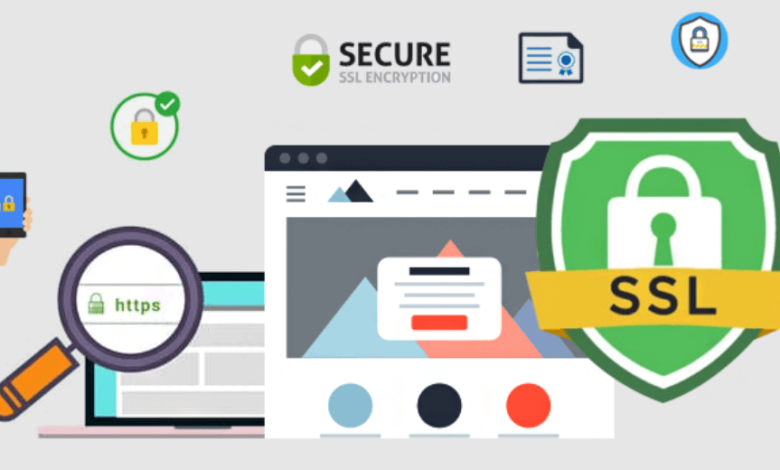SSL Certificate and Website Protection Using Merion

Imagine you’re walking down the street, and you see a shiny new store. It has a great logo, lovely windows, and a helpful sales representative standing out front. But—wait—there’s no door. No way in. You’re stuck looking from the outside, and you’re not even sure if the store is open. That’s how your website feels to visitors if it doesn’t have SSL protection. It’s like standing on the sidewalk, unable to step in and browse without a sense of security.
SSL (Secure Sockets Layer) certificates are the digital equivalent of that door, offering visitors a secure, encrypted connection that builds trust and keeps their data safe. The fact is, selecting the correct SSL certificate and managing your website’s security can seem like a daunting task—especially when there are numerous types, features, and options available.
But here’s the good news: with software like Merion, you can make SSL management feel like a breeze, while ensuring your website is appropriately protected and compliant. Let’s talk about why SSL certificates matter, how they affect your SEO and user experience, and how Merion helps you get it right.
What is SSL, and Why Does it Matter?
Let’s get this out of the way first: SSL stands for Secure Sockets Layer, and it’s the protocol that establishes a secure, encrypted link between your website and the user’s browser. It’s what creates the little padlock next to your URL and what keeps personal data—such as credit card information, login credentials, and even personal messages—secure when transferred over the web.
Without SSL, sensitive information travels in plain text, making it a prime target for hackers. Not only does this pose a significant security risk, but it can also deter visitors from engaging with your website.
For businesses, that’s a problem. If your website doesn’t have SSL, it could deter potential customers who are concerned about their privacy. Additionally, Google has been clear about its stance: websites with SSL are given preference in search rankings. So, if you’re not using SSL, you might be harming your chances of ranking high in search engine results.
How SSL Affects SEO and User Trust
Let’s talk about the connection between SSL certificates and your website’s SEO.
SEO Impact: SSL as a Ranking Factor
Google has confirmed that SSL is a ranking factor. Essentially, secure websites are given a slight ranking boost compared to non-secure ones. This means if you want to stay competitive in search results, securing your website with SSL should be a top priority.
But there’s more. Having SSL protection is part of the overall user experience that Google values. A secure website is more likely to get traffic from Google’s search engine because it reduces friction for users, and Google knows that users trust websites with SSL certificates. So, your secure webpage could have a higher CTR (click-through rate) compared to an insecure one. More clicks equal more traffic, and more traffic can further improve rankings—creating a beautiful feedback loop.
Trust and Conversion Rates
SSL certificates aren’t just good for SEO—they also build trust. When your visitors see that padlock symbol and the “HTTPS” in front of your URL, it gives them confidence that their data will be protected. In fact, a survey found that 84% of users would abandon a purchase if they see that the website isn’t secure.
This is huge for businesses, especially those with e-commerce sites. SSL certificates are a necessity if you want to protect sensitive customer data, such as credit card numbers, and ensure a seamless checkout process.
So, SSL certificates don’t just boost SEO—they also increase conversion rates. When customers feel secure, they’re more likely to make a purchase or fill out a form.
Different Types of SSL Certificates
Not all SSL certificates are created equal. They come in various shapes and sizes, tailored to meet your specific needs. Let’s break down the three most common types.
1. Domain Validation (DV) SSL Certificates
A Domain Validation certificate is the most basic level of SSL protection. It confirms that the website is indeed owned by the person requesting the certificate. This type is usually issued quickly (often within minutes) and is ideal for personal blogs or small websites that don’t handle sensitive information.
Pros: Quick to issue, low cost. Cons: Offers the lowest level of trust and security.
2. Organization Validation (OV) SSL Certificates
An OV SSL certificate not only validates the domain but also the organization behind it. This means a company’s identity is verified before the certificate is issued. It’s ideal for businesses that want to demonstrate their legitimacy and provide visitors with additional confidence in their site.
Pros: Shows your organization is verified, more trusted than DV. Cons: Takes a little longer to issue, more expensive than DV.
3. Extended Validation (EV) SSL Certificates
EV SSL certificates offer the highest level of trust and are often used by large businesses, financial institutions, and e-commerce websites. These certificates require extensive validation of your business, including verification of your legal existence and physical address. When a site has an EV certificate, it shows a green bar in the browser with the organization’s name, signaling to visitors that they are on a highly secure site.
Pros: Maximum trust, visible company name in the address bar. Cons: More expensive and a longer validation process.
How Merion Software Helps You Manage SSL Certificates
Now that you know why SSL certificates are essential, let’s talk about how Merion can help you manage them easily. As a business, dealing with SSL certificates can be a bit of a hassle—setting them up, renewing them, and ensuring that all pages are secured can be overwhelming.
Merion is software designed to simplify this process. It automates SSL management, from issuing new certificates to setting up renewals, so you don’t have to worry about manually keeping track of expiration dates or making sure that every page on your website is secure. With Merion, you can be confident that your website is protected, and you won’t run into any security gaps.
Benefits of Using Merion for SSL Management
- Automatic SSL renewals: No more last-minute panic when a certificate is about to expire.
- Comprehensive website protection: Ensures that every page, subdomain, and piece of sensitive data is protected.
- Easy integration: Simple to set up with minimal technical knowledge.
- Real-time monitoring: Receive alerts when an issue requires attention, allowing you to address it promptly.
Conclusion: Protect Your Site with SSL and Merion
Ultimately, selecting the correct SSL certificate for your website is about securing your business, establishing trust with your visitors, and enhancing your SEO. Whether you’re running a small blog or a primary e-commerce site, SSL protection is something you can’t afford to skip.
And with the help of Merion software, managing SSL certificates becomes a seamless part of your website maintenance. No more worrying about renewals or security gaps—just secure, trustworthy, and search engine-friendly pages.
FAQ
What’s the difference between DV, OV, and EV SSL certificates? DV is basic, OV adds organizational verification, and EV provides the highest trust with visible organization names in the browser.
How do I install an SSL certificate on my website? Most hosting providers offer easy integration for SSL certificates, but using software like Merion can automate and streamline the entire process.
Do SSL certificates affect my SEO? Yes, Google considers SSL as a ranking factor. Secure websites are favored in search results.
Can I use free SSL certificates for my business site? You can use free certificates, such as Let’s Encrypt, for basic security. However, for added trust and business verification, OV or EV certificates are recommended.




